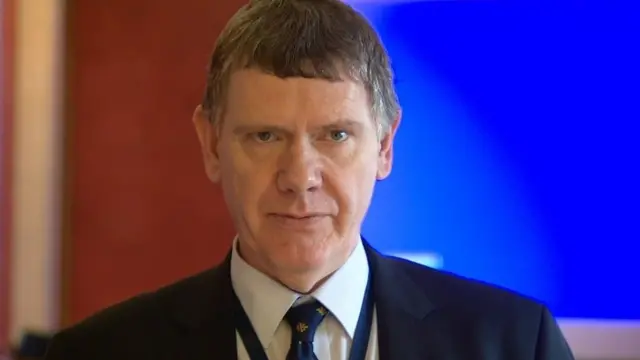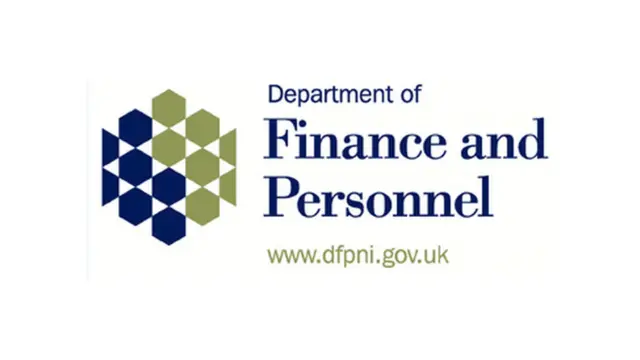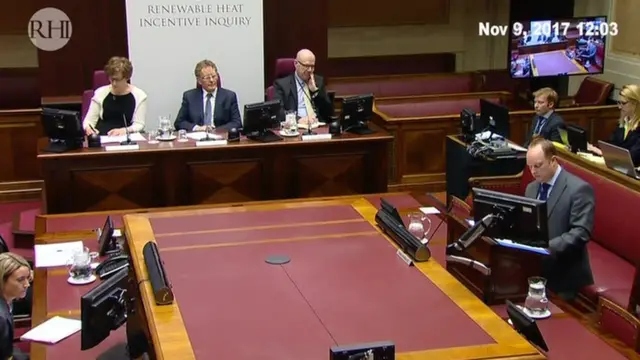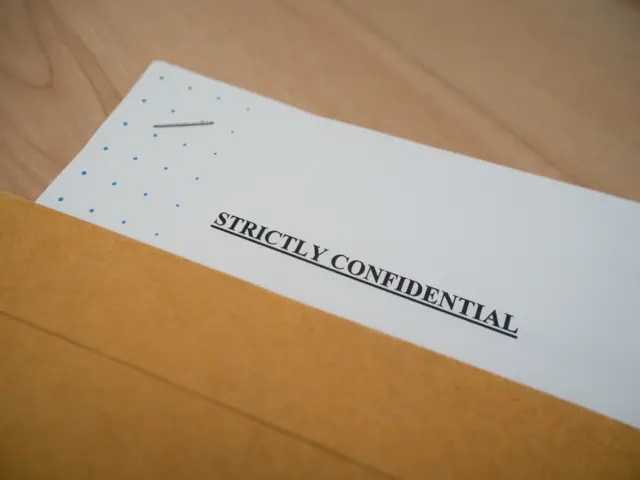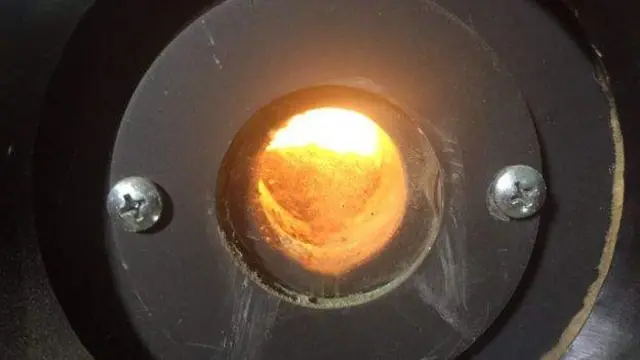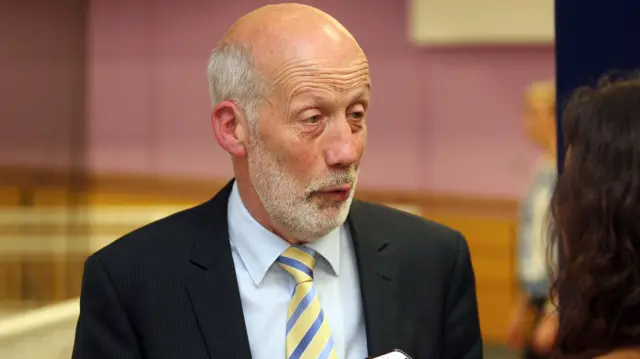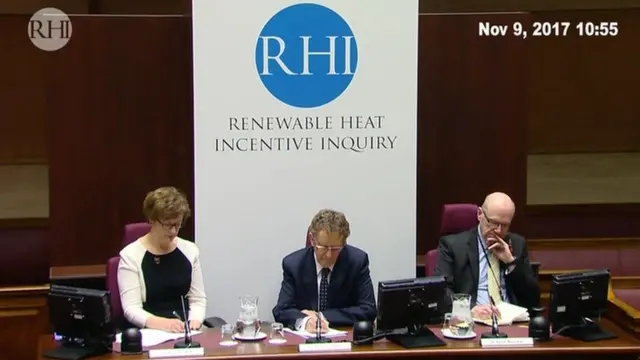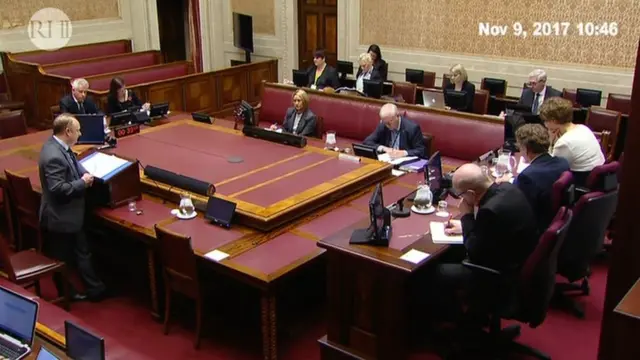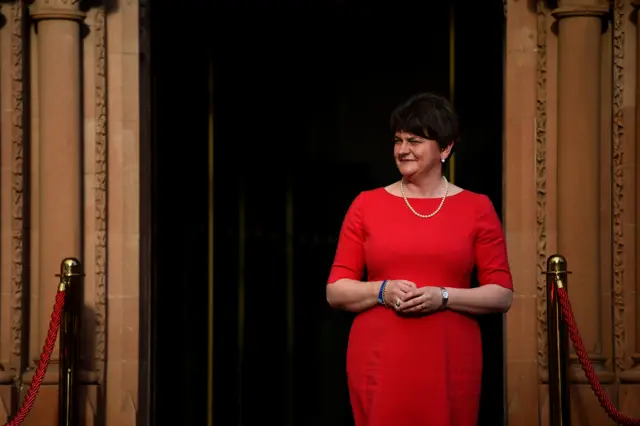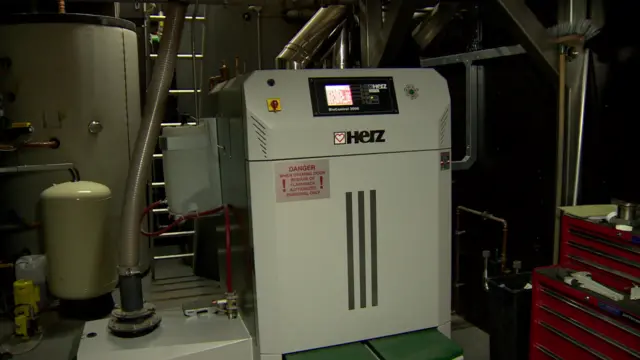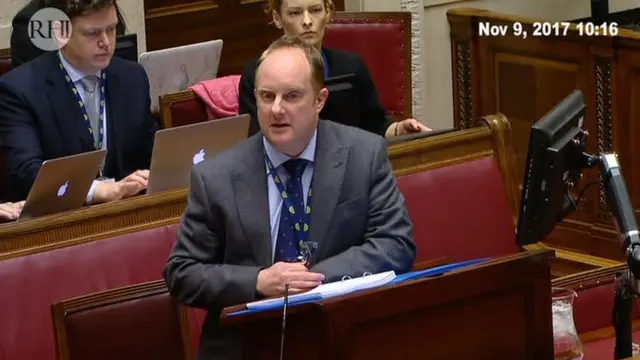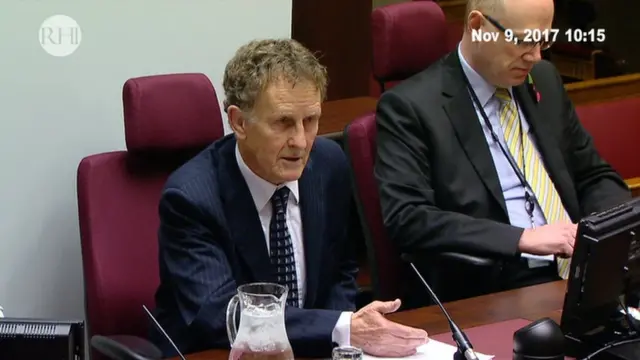'Adviser filtered and filleted RHI information'published at 13:51 GMT 9 November 2017
In Mr Bell's (below) evidence to the inquiry, he alleges that communications between himself as DETI minister and the department were "overseen and filtered" by his special adviser Timothy Cairns.
Mr Cairns "filleted information" about the RHI scheme, according to Mr Bell, and was "in a position to, and did, exercise considerable control in respect of the agenda of the weekly ministerial issues meetings".
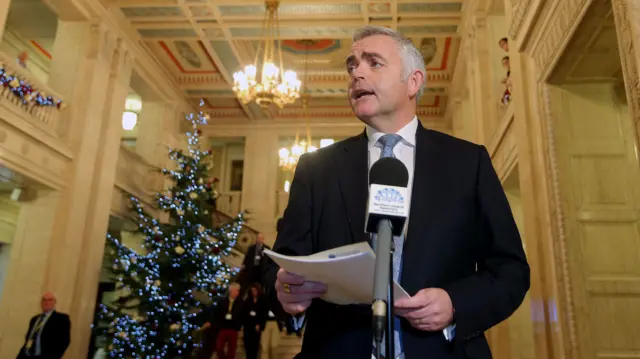 Image source, Press Eye
Image source, Press EyeMr Scoffield says the "picture painted" by the former DUP MLA is that he believed he was being "manipulated" and "kept in the dark" about what was happening in his department.
When Mr Bell first made the claims to the BBC last year, Mr Cairns publicly denied them.
